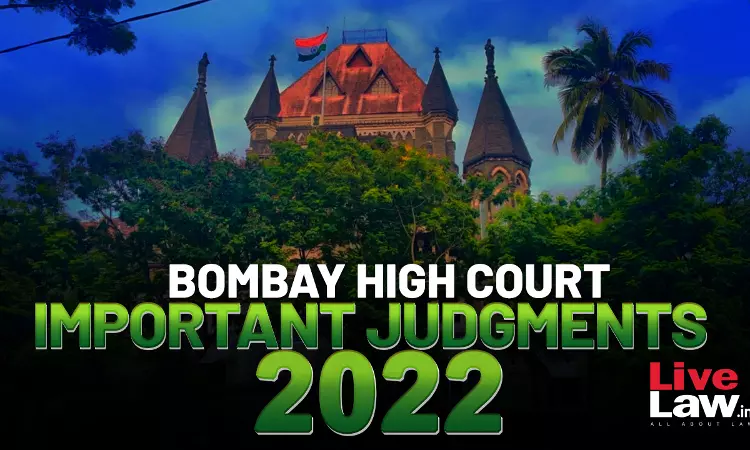Best Of 2022- Important Judgments Of Bombay High Court
Sharmeen Hakim & Amisha Shrivastava
31 Dec 2022 7:29 PM IST

Next Story
31 Dec 2022 7:29 PM IST
LiveLaw reported 527 judgements from Bombay High Court in 2022. Here are some of the important decisions:Can't Decide Whether A Film's Material Denigrates A Community Or Not Without A Challenge To Censor Certificate: Bombay High Court Case Title: Hiten Dhirajlal Mehta vs Bhansali Productions Citation: 2022 LiveLaw (Bom) 50 There can be no prohibition on a film's exhibition in...
